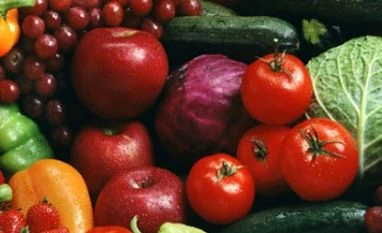India is one of the world’s leading food producers - and food losers. It is the second largest producer of fruits and vegetables but also throws away Rs 133 billion of fruits and vegetables annually. According to an Emerson Report, this situation is attributed to inadequate and inefficient cold chain. Adequate cold storage facilities are available for just about 10 per cent of India’s horticulture production. It is shocking that of the total annual food production, around 30-40 per cent is wasted before consumption.
The Union Food Processing Industries Minister, Harsimrat Kaur Badal, reasserting that 42 sanctioned mega food parks would be operational within the next two years while announcing government’s plans to set up 500 cold chain projects that will reduce post-harvest losses of fruits and vegetables. A contrasting fact is that out of the 104 million tonnes of perishable food transported in India only 4 million tonnes are transported in refrigerated vehicles.
While the blame is usually shifted to inadequate cold chain facility, part blame should be on the laggard approach towards adopting innovations from material science companies which can improve the situation. India’s cold chain sector is still an ecosystem comprising surface storage and refrigerated transport. The industry has been growing at a CAGR of 20 percent for the last three years and is anticipated to reach Rs 624 billion ($ 13 billion) by 2017, according to 2014 estimates.
Although an effective cold chain does not solve the problems associated with feeding the human population, it certainly makes a key contribution. Currently, India has 6,300 cold storage facilities unevenly spread across the country, with an installed capacity of 30.11 million metric tonne. However, effort towards multi-purpose cold storage is yet to gain major footprint.
More than 50 percent of the cold storage facilities in India are currently concentrated in Uttar Pradesh and West Bengal, while other states still face a challenge with investments from the government and private operators. The lack of a cold chain is a particularly serious problem in the south of the country where there are hardly any cold storage units in a hotter and more humid climate.
As India’s population soars past one billion, the challenge of feeding its people also grows. The food processing industry is positioned to be a vital part of the solution. The latest FICCI report further augments this fact by stating that our nation needs a ‘Second Green Revolution’ with a strong emphasis on the food processing industry.
To aid the growth of the sector, Government of India has undertaken initiatives like forming National Center for Cold Chain Development (NCCD), allowing 100 percent FDI in cold chain infrastructure and investing $ 15 billion in cold storage infrastructure. To get the right results, however, we need to induct efficient insulation to the core of cold chain and food transporting operations.
Also Read
Ultra-efficient insulation: Materials to the rescue
The burgeoning demand for better cold chain supply to support the agricultural sector and the food processing industry needs to be supplemented by improvement in insulation materials. Traditionally blankets and plastic wraps have been used in cold chain supply which usually result in food spoilage on account of higher exposure to environmental elements and sudden ambient temperature changes. The problem of food lost during transport, storage and processing could be largely solved with existing cold chain products and technologies. Material science engineers have been constantly looking at polymers to improve this situation.
Ajay Durrani, country president (India) and MD, Covestro India
While consumers and the authorities are calling for refrigeration equipment with ever higher energy efficiency, the competition is forcing manufacturers to cut costs and improve productivity. Leading material science companies have developed customised product and process engineering solutions with these demands in mind. The microcell insulating system enables cost-efficient processing using established foam technologies and also features good flow and mold removal properties.
In addition to their good insulating performance, polyurethanes are also lightweight, making refrigeration equipment and coolers easy to transport. The combination of low density and a closed-cell structure also results in a favourable insulation-to-material-thickness ratio. This saves space and also delivers impressive energy savings.
An example has already been set by the Indian Polyurethane Association which took a small but bold step in tackling the food wastage problem by funding one urban cold store in Pune area. A 7’ by 8’ by 8’ cube of high performance insulation was created with the specific objective to set up a model chain which hopes to eliminate the wastage at the last mile of the food chain. This wastage amounts to 15 percent of the Rs 200,000 crore on an all India basis.
This initiative has been functioning since April 2016 and the impact is already seen in the quality in the fruits and vegetables which are served to the residents in surrounding areas like NIBM, Koregaon Park, and Kalyani Nagar.
Thus efficient insulation through the use of polyurethane materials would help reduce spoilage by limiting exposure to environmental elements, lowering exposure to sudden ambient temperature changes, both heat and freezing temperatures, and to environmental elements. This will result in unbroken cold chains and would significantly increase the food supply in developing countries.
___________________________________________________________________________________________________
Ajay Durrani is the country president (India) and managing director of Covestro India Pvt Ltd
___________________________________________________________________________________________________
Ajay Durrani is the country president (India) and managing director of Covestro India Pvt Ltd
)